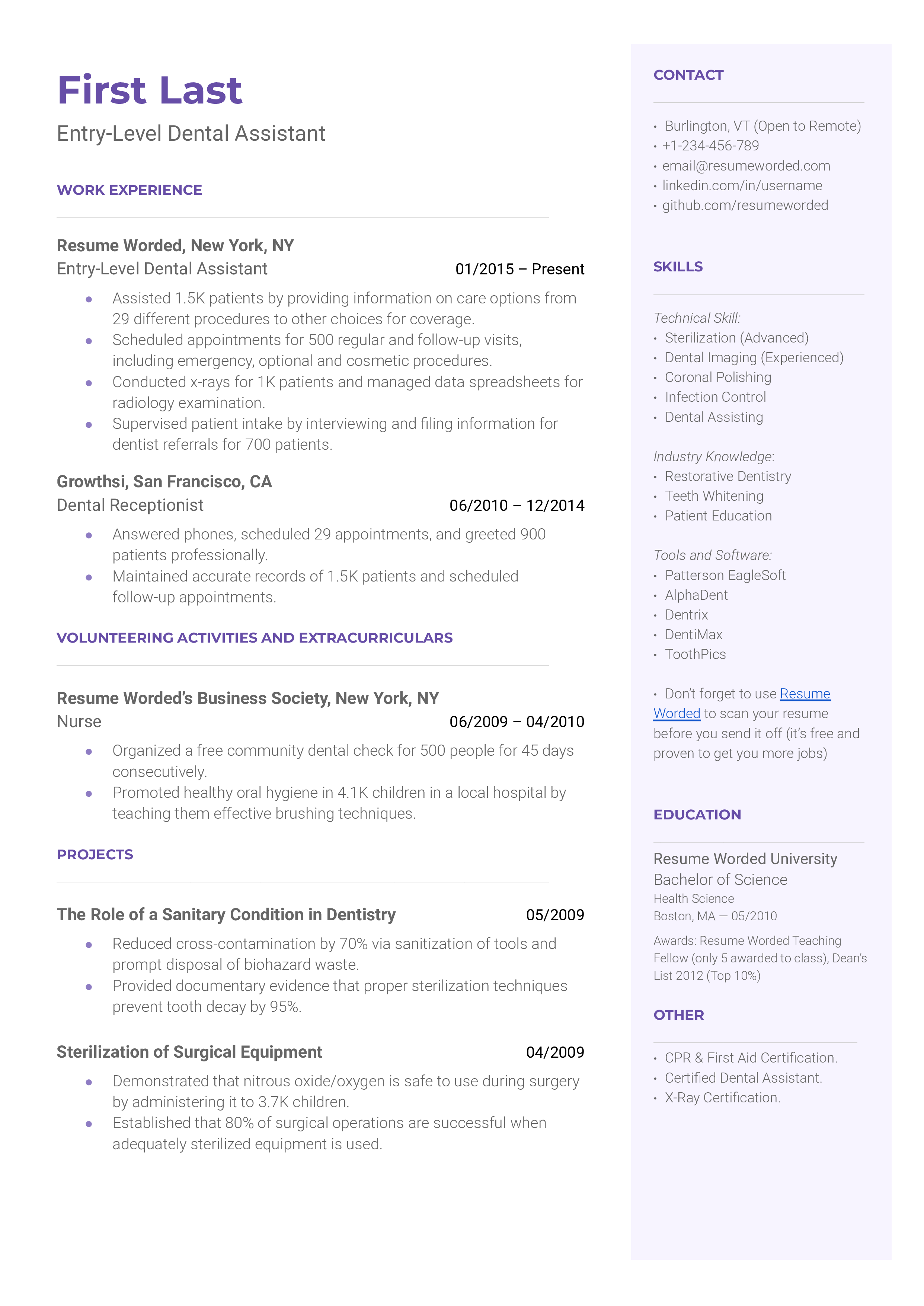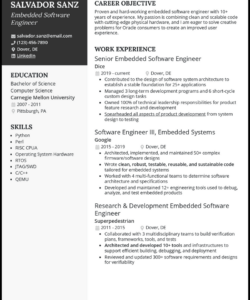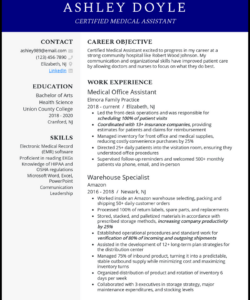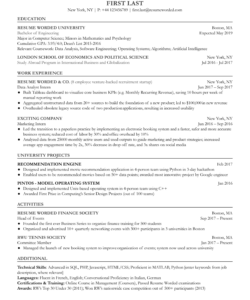So, you’re ready to dive into the world of dental assisting? That’s fantastic! It’s a rewarding career where you get to help people, learn new skills, and be an essential part of a healthcare team. However, if you’re just starting out, you might be wondering how to create a resume that truly stands out when you don’t have years of direct dental experience under your belt. It can feel like a tricky puzzle to solve.
Don’t worry, you’re not alone, and it’s certainly not impossible. Many successful dental assistants started exactly where you are now. The trick is knowing how to highlight your potential, showcase your relevant abilities, and present yourself as a valuable asset to any dental practice. This article will guide you through crafting a compelling resume and provide insights that will serve as a fantastic starting point for your very own entry level dental assistant resume template.
Crafting Your Entry Level Dental Assistant Resume: What to Include
When you’re building your entry level dental assistant resume, the key is to shift focus from "direct dental experience" to "transferable skills and relevant education." Think about any customer service roles you’ve had, volunteer work, or even school projects that required organization, communication, or working with people. These experiences, though not dental-specific, demonstrate qualities that are highly valued in a dental office environment. Your goal is to convince the hiring manager that even without hands-on experience, you possess the foundational skills and eagerness to learn that make you an ideal candidate.

Your "Education" section becomes incredibly important. If you’ve completed a dental assisting program, externship, or even relevant college courses, make sure this section is detailed and prominent. Include the name of the institution, your program of study, and your graduation date or expected graduation date. If your program included any clinical rotations or hands-on labs, you can briefly mention these to show practical exposure, even if it wasn’t a paid position. This helps to show your commitment and foundational knowledge.
Highlighting Relevant Skills
Beyond formal education, a strong “Skills” section is vital. This is where you can truly shine by listing both your technical (hard) and interpersonal (soft) skills. Even if you haven’t performed a procedure in a real dental office, you likely learned certain technical skills during your training. For instance, you might have practiced instrument sterilization, basic charting, or taking vital signs. List these with confidence.
Equally important are your soft skills. Dental assistants interact with patients who may be anxious or in pain, so empathy, excellent communication, and a calm demeanor are crucial. Think about:
- Communication: Active listening, clear verbal and written communication.
- Customer Service: Patience, problem-solving, creating a welcoming environment.
- Organization: Managing schedules, keeping records, maintaining supplies.
- Teamwork: Collaborating with dentists, hygienists, and other staff.
- Attention to Detail: Ensuring accuracy in charting, sterilization, and patient care.
- Adaptability: Learning new procedures quickly and handling unexpected situations.
Remember, a dental office is a fast-paced environment that requires individuals who can multitask and remain composed. Highlighting these attributes will show you’re a well-rounded candidate.
Making Your Resume Stand Out Without Experience
To truly make your entry-level resume pop, start with a compelling "Objective" or "Summary" statement right at the top. For an entry-level applicant, an "Objective" statement might be more suitable, clearly stating your career aspirations and what you aim to achieve in the role. For example, you could say: "Highly motivated and recently certified dental assistant graduate seeking an entry-level position to apply learned skills in patient care, sterilization, and administrative support within a dynamic dental practice." This immediately tells the hiring manager your goal and highlights your key attributes.
The presentation of your resume is also critical. Even with limited experience, a clean, well-organized, and professional layout makes a huge difference. Use clear headings, consistent formatting, and an easy-to-read font. Keep it concise, ideally one page, especially for an entry-level role. Ensure there are no grammatical errors or typos – these can immediately undermine your professionalism. Think of your resume as your first impression; you want it to be polished and flawless.
Furthermore, ensure you include any relevant certifications you hold. This could be CPR certification, X-ray certification, or any specific dental assisting certifications you’ve earned. These demonstrate practical skills and a commitment to patient safety and professional development. List the certification name, the issuing body, and the date obtained or expiration date. This section provides concrete proof of your readiness to enter the dental field.
Finally, always tailor your resume to each specific job description. Look for keywords in the job posting that describe required skills or responsibilities and incorporate them naturally into your resume. If they emphasize "patient comfort," ensure you highlight your communication and empathy skills. If they mention "digital charting," and you have experience with relevant software, even from training, include it. Customizing your application shows genuine interest and makes you a stronger match for the role.
Your journey into dental assisting is an exciting one, and a well-crafted resume is your first step. By focusing on your education, transferable skills, certifications, and a polished presentation, you can create a powerful document that captures the attention of potential employers. Remember to approach each application with confidence and a positive attitude, knowing you have valuable qualities to offer. Good luck with your job search!


